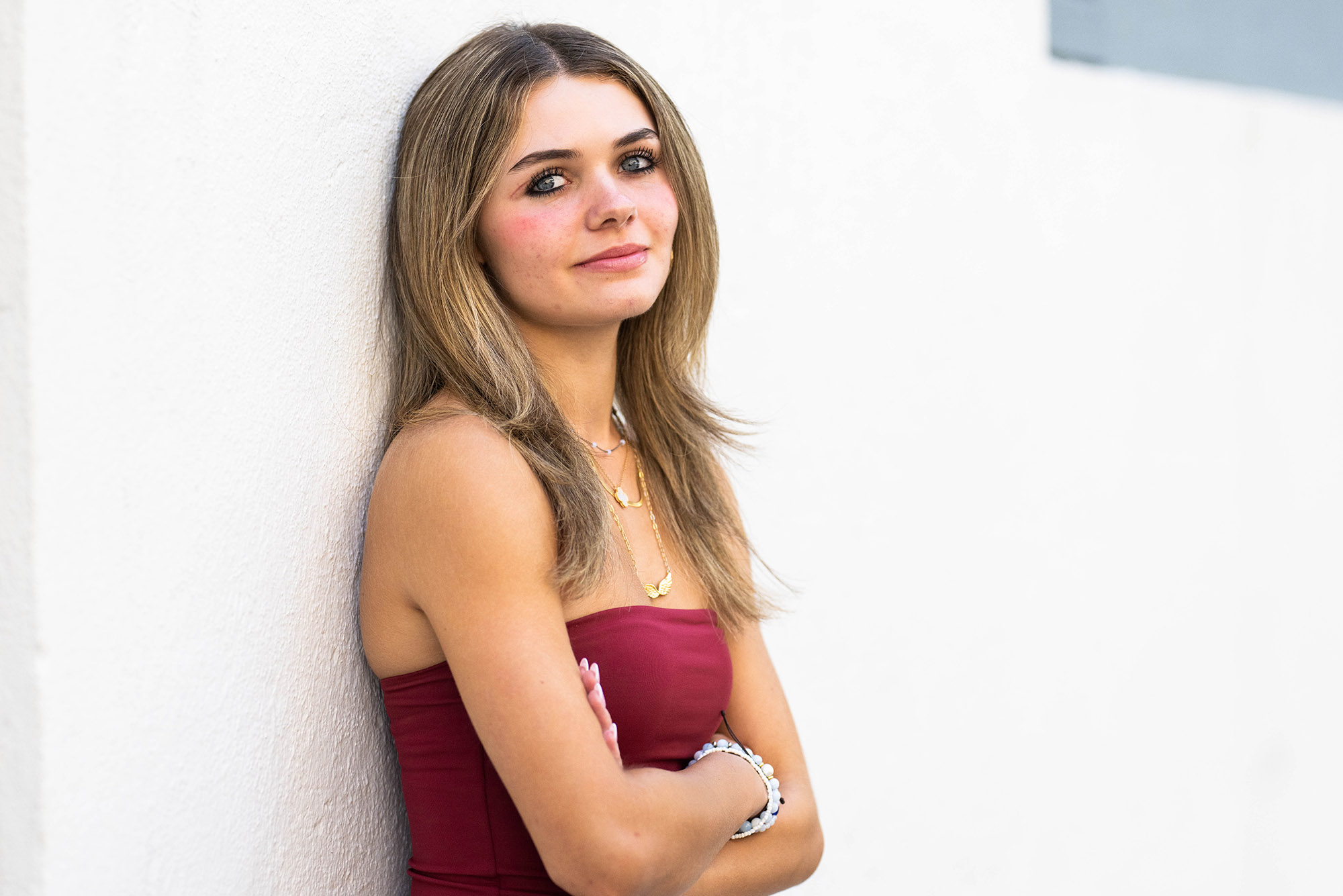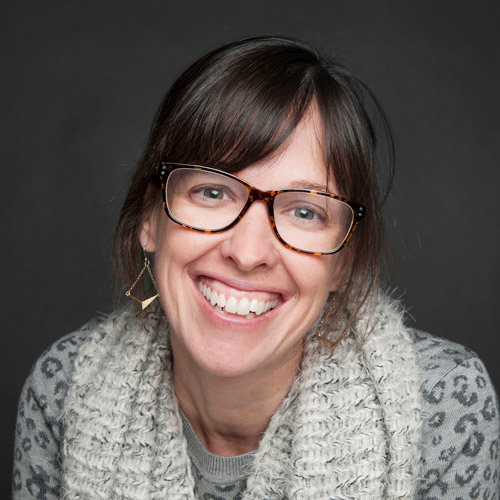Introducing BU’s Newest Terriers: Camille Cattaui
This freshman is a foodie with a deep interest in sustainability and reducing food waste

Introducing BU’s Newest Terriers: Camille Cattaui
This freshman is a foodie with a deep interest in sustainability and reducing food waste
This fall, 3,300 freshmen and 926 transfer students begin their careers at Boston University. As the 2024-2025 school year starts, we bring you some of their stories.
Most kids’ food palates consist of chicken fingers, pizza, chocolate milk, and maybe some mac and cheese. But by the time she was 12, Camille Cattaui was light-years ahead of her peers and dreaming up dishes so impressive that judges offered her a spot on a national TV show.
In 2016, Cattaui (CAS’28) made it to the final round of the Fox TV show MasterChef Junior after showing off her cooking chops and crafting a salmon ceviche with an orange citrus sauce (the challenge called for a dish that didn’t require heat). She was ultimately asked to sign a contract for the show, but her parents turned it down because they were afraid it would disrupt her life.
Fortunately, the dashed dream of TV stardom didn’t curtail her culinary plans, and in late August, Cattaui arrived at BU with food on the brain. She has her sights set on BU’s School of Hospitality Administration, especially its new 4+1 Gastronomy Program, which allows SHA bachelor’s graduates to automatically become a Master of Liberal Arts degree candidate in Metropolitan College’s Gastronomy Program. She is also considering minoring in economics (hence her current enrollment in the College of Arts & Sciences).
Cattaui started cooking with her uncle (a banker by trade, but with a passion for cooking) when she was three or four years old. Because of her interest, her mom then signed her up for kid cooking classes. The two families created a pod during the COVID pandemic, which meant more time to bond in the kitchen, making bread and experimenting with molecular gastronomy.
“I’ve always had a very diverse palate and have always tried everything from a really young age,” Cattaui says. “When I started cooking with my uncle, sticking with chicken nuggets and French fries was never an option because he always pushed me and introduced me to new recipes and to new kinds of techniques.”
When she was 16, a family connection helped her score an internship at the upscale New York steakhouse BeefBar. “I was able to observe as they were creating the restaurant,” she says. “I got to see the process and how it went from the ground up, starting with the construction, the uniforms of the waiters, and the menu. It was an exceptional opportunity.”
When she snuck a peek at a menu draft, Cattaui had one suggestion. She’d noticed the menu had no vegetarian or vegan options (her mom is a vegetarian), so “I did a lot of research and found different recipes and emailed them over,” she says. One of her suggested picks was a cauliflower steak, which now appears on the menu, served with herbed tahini, pomegranate, and cilantro.
You can try out her most recent experiment the next time you visit the Big Apple.
Cattaui’s mom saw a contest inviting New Yorkers and those in the hospitality industry to create walking tour itineraries tied to their area of interest. Cattaui named hers “Green Is Good” and identified 10 spots that foodies might enjoy in lower Manhattan, with a particular focus on local history and eco-foodie activities.
“Since I live downtown, it was interesting to research and figure out what is going on in my area,” she says, “and look at the combined food systems, food waste, and efforts in sustainability.”
The first stop on her hour-long 1.2-mile tour was at Pier 26, overlooking the efforts of the Billion Oyster Project, which works to restore oyster reefs in New York Harbor by 2035. The nonprofit sets 50 million oysters into the local waterways every season. During her research, Cattaui was surprised to learn that in the 17th century, New York Harbor had half of the world’s population of oysters. By 1900, the harbor was nearly lifeless because of pollution and overharvesting. Over the next century, there was a substantial cleanup, and marine life slowly returned.
Through her research, Cattaui learned about oysters’ wonders: an adult oyster can harvest and filter up to 50 gallons of water a day, oyster beds provide shelter and habitat to other forms of marine life (similar to coral reefs), and oyster beds even act as natural storm barriers, softening the blow of large waves and slowing erosion.
“It’s estimated that it will be 100 years before we’ll be eating our Hudson River oysters again,” Cattaui says in her tour audio, “but luckily the city has many offerings of freshwater oysters on the ready for anyone with a craving for the sweet delicacy.”
Other stops on her tour brought folks to the Financial District’s gardens and farmers markets, a former landfill—now a beautiful park—in Battery Park City, and 225 Liberty, a skyscraper with an urban garden and bee colony. She recorded herself giving the tour, providing interesting facts about each stop, and talking about proposals underway to use boats and trains to distribute food in a more eco-friendly fashion.
“[There are] entrepreneurs trying to find ways to make us healthier and envisioning a food system that does not have the sort of climate-change-provoking impact as industrial farming has had,” she says on the tour. “New York is thinking a lot about how, over the next few years, food can be more equitably distributed, [made] fresher, better, fueling all New Yorkers so that they have the energy and sustenance in this great city.”
Although Cattaui’s tour didn’t make it to the contest’s finals, she’s continuing to make edits to the audio and hopes to soon make it available for download.
When she’s not in class or busy with hobbies (she’s considering joining the club squash and lacrosse teams) this semester, she plans to scout out restaurants to try around the city. Boston, after all, was a big draw for her, seeing that it feels similar (albeit smaller) to her Manhattan upbringing.
“Boston has a great urban location and a strong restaurant and hotel scene,” Cattaui says. “You have all these opportunities, and I just thought that was kind of perfect for me.”


Comments & Discussion
Boston University moderates comments to facilitate an informed, substantive, civil conversation. Abusive, profane, self-promotional, misleading, incoherent or off-topic comments will be rejected. Moderators are staffed during regular business hours (EST) and can only accept comments written in English. Statistics or facts must include a citation or a link to the citation.